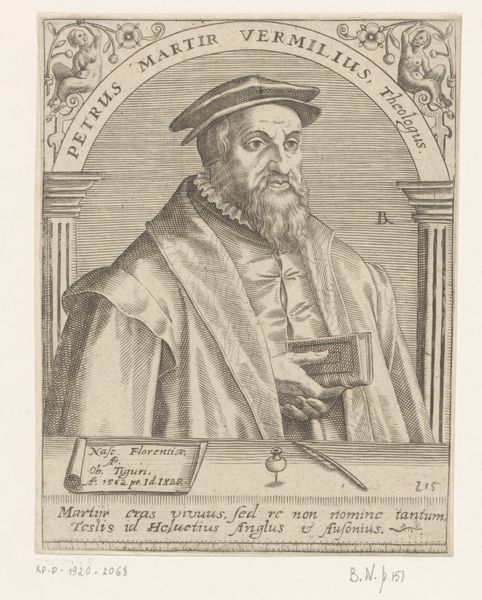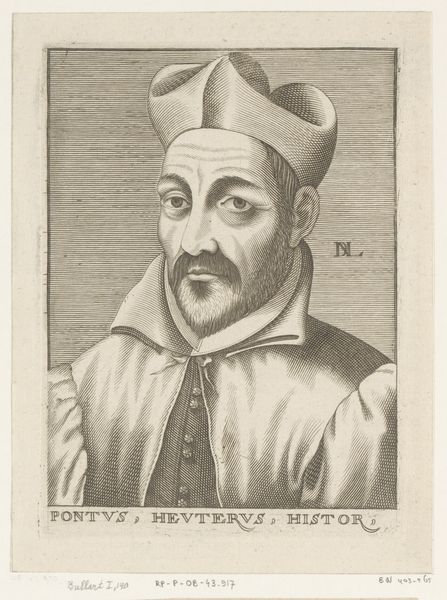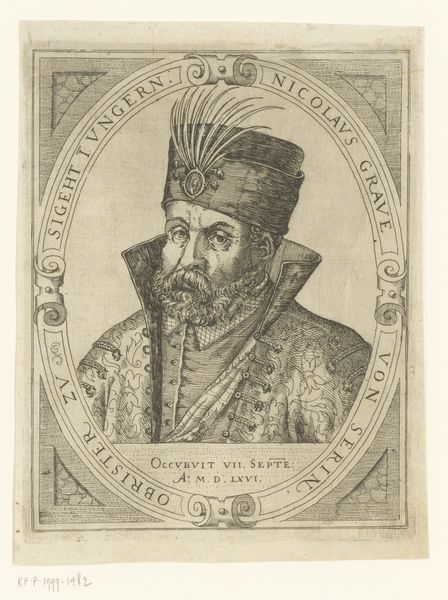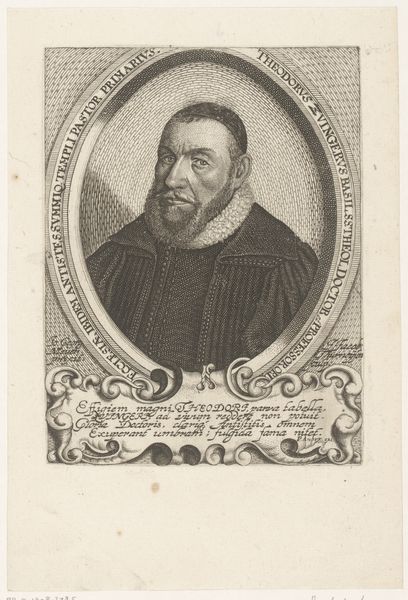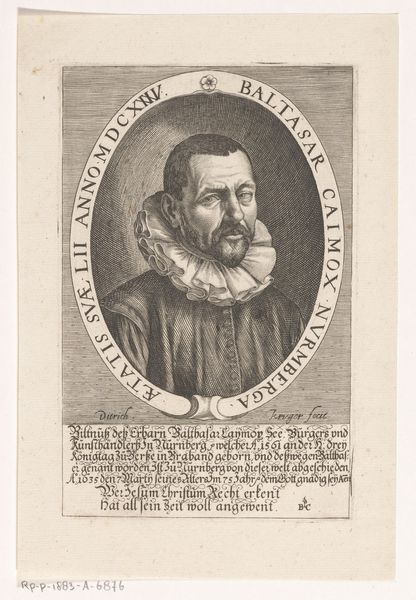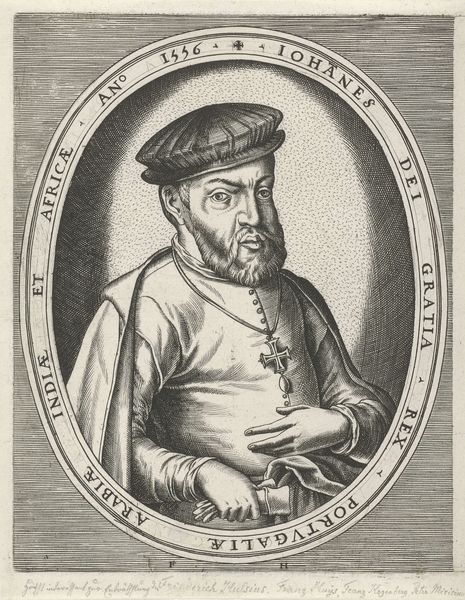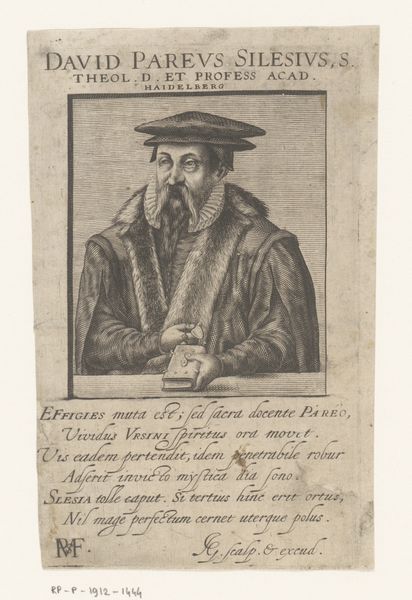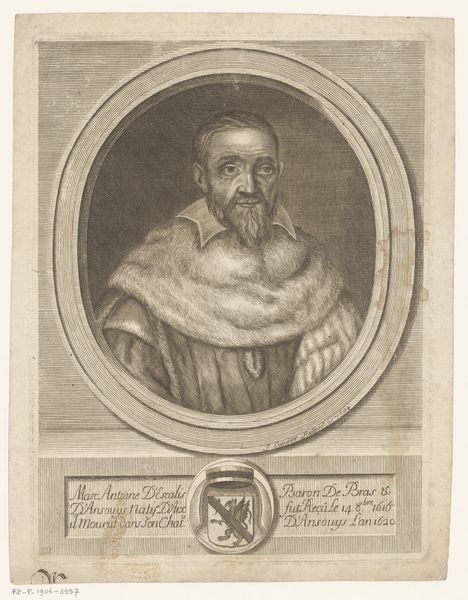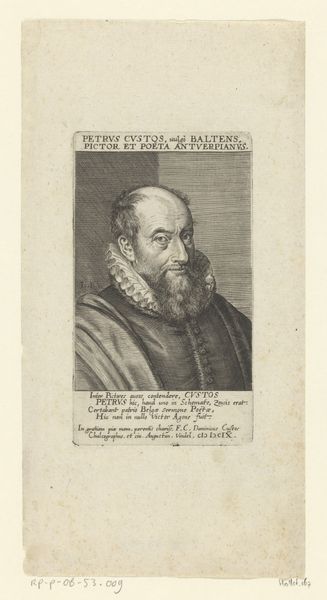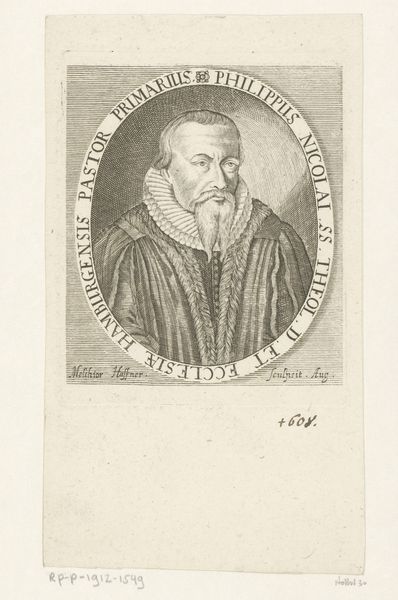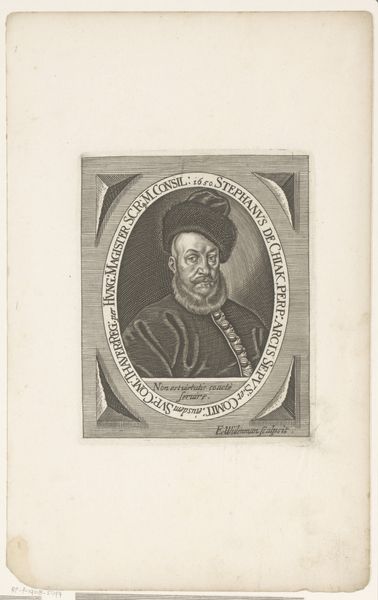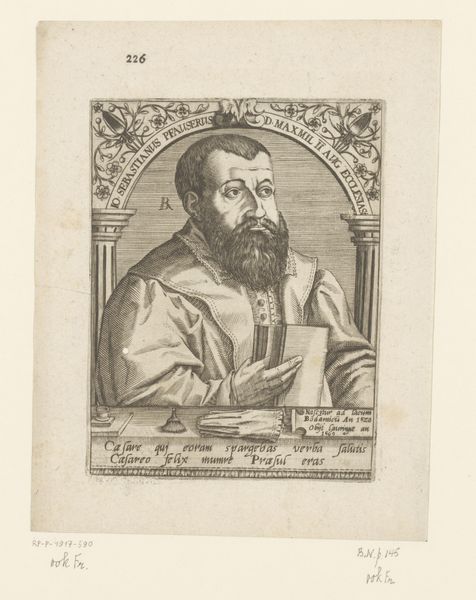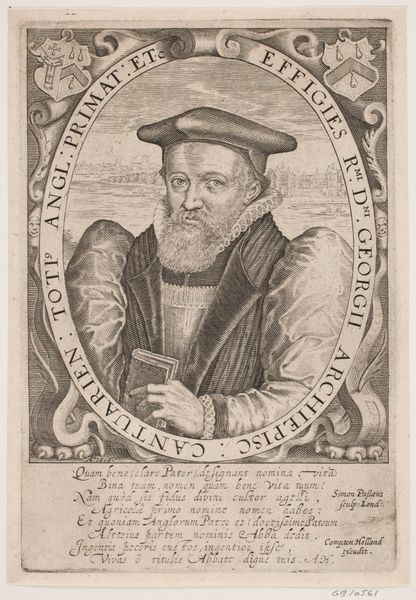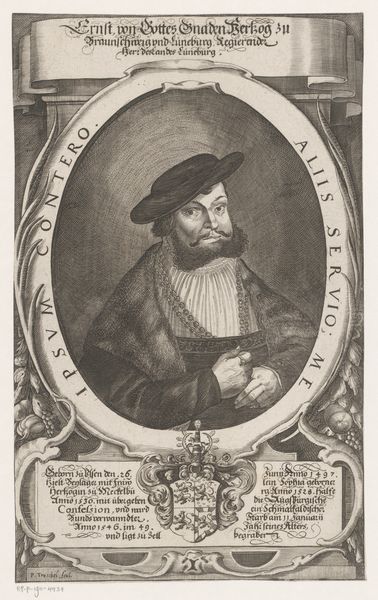
print, engraving
#
portrait
#
aged paper
#
toned paper
#
baroque
# print
#
old engraving style
#
personal sketchbook
#
portrait reference
#
engraving
Dimensions: height 143 mm, width 100 mm
Copyright: Rijks Museum: Open Domain
Curator: Looking at this somber portrait, what catches your eye? Editor: The sitter's gaze is quite direct; there's an almost unnerving level of composure, as if peering through centuries. What details can you share with me about this striking individual? Curator: This is "Portret van Johann Jakob Grynaeus", an engraving from 1650 made by W.C. Heim. Grynaeus, a prominent theologian from Basel, Switzerland, is rendered with remarkable precision using engraving techniques. His image is encased in an oval frame bearing inscriptions. Editor: Ah, yes. The oval format gives it an air of authority, like an ancient coin. But let’s discuss the iconography. What are your thoughts about the symbolic value conveyed? I mean, note the sharp line work. Curator: The lettering surrounding Grynaeus presents him as not only a theologian but as a man of piety, connecting the material Grynaeus to this ideal angel, a kind of divine spark of faith. He's a man of learning and religious devotion, presented at a crucial juncture in reformation history. Editor: Absolutely, the inscription does much work connecting image with ideology. This portrayal becomes quite revealing, the engraving freezing a powerful reformation figure who shaped his historical time. I am also noticing the choice to give a dark tone to the paper to highlight his enlightened face. I’d also add that the aged paper, even today, carries with it weight. Curator: The contrast between the lines is compelling. There is, though, a very masculine, almost cold authority about Grynaeus. A visual presentation of power linked explicitly to knowledge and faith during this period. Editor: In revisiting this 17th-century engraving today, it is interesting to disentangle both Grynaeus and Heim's places in time. Curator: Indeed. It offers insights into the intricate interplay of religion, portraiture, and social stature during this period. Thank you!
Comments
No comments
Be the first to comment and join the conversation on the ultimate creative platform.
